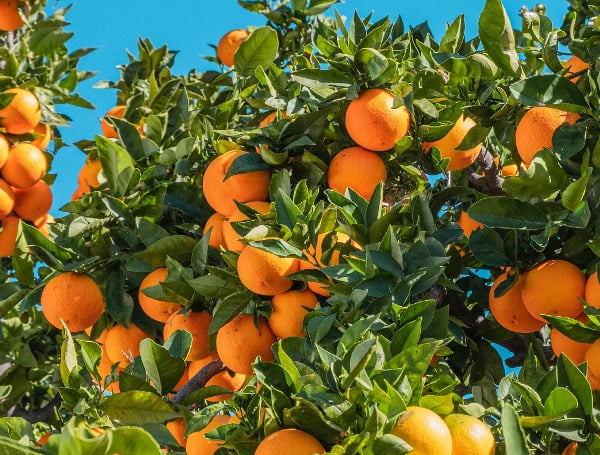With the citrus industry at a crossroads, growers are looking for any solution to cope with the deadly citrus greening disease. Scientists see genetic editing – and in particular CRISPR technology — as one potential avenue to rescue Florida’s signature crop, and consumer perceptions of the technology are key.
Bachir Kassas, an assistant professor in the UF/IFAS department of food and resource economics and co-lead of the Human Dimensions Team in the University of Florida Crop Transformation Center (CTC) is working to assess consumer acceptance of biotechnology.
READ: Citrus Craze: How To Grow Thriving Trees In Your Florida Backyard (And Beyond)
This work will help guide scientists, citrus growers and others in the industry with insights on consumers’ perceptions, attitudes and preferences for gene editing and modification in citrus.
Citrus producers will have the opportunity to learn more about CRISPR – a form of gene editing — and genetic modification.
CRISPR allows scientists to modify DNA by cutting sections of the genetic code. This way, scientists can remove, add or alter genes with goals to make the resulting trees more resistant to disease or, for example, to improve the taste of fruit.
In genetic modification, scientists can modify crops and other organisms by taking genes from one species and inserting them into another to achieve similar goals.
To gauge consumers’ willingness to buy orange juice made from CRISPR-edited citrus, consumers first need to understand the basics of CRISPR.
READ: Carrying On A Family Tradition: UF/IFAS CALS Grad Inspires The Next Generation Of Citrus Growers
Kassas already has an idea of consumer knowledge of CRISPR. He conducted focus groups in New York City and Jacksonville in 2021, and he showed a video to them. Even after watching the video, they still didn’t understand the acronym, nor the difference between gene editing and modification.
“Most people think it’s something in a refrigerator,” Kassas said.
Over the next year, Kassas plans to test the effectiveness of different communication formats on consumers’ acceptance and willingness to pay for orange juice produced from citrus developed through GM and CRISPR – each of which is a form of biotechnology.
The study, which will be conducted in Gainesville, will present consumers with different formats of a promotional message. It will examine their resulting neurophysiological responses to citrus and biotech stimuli as well as their valuations for orange juice made from citrus grown with and without biotechnology.
This upcoming experiment follows a study published in November, in which Kassas and other researchers presented almost 2,000 online participants with information in multiple ways.
That research showed that consumers discount orange juice made using biotechnology compared to the conventional non-biotech alternative, but the discount was almost twice for GM compared to CRISPR.
But all information – and the ways it’s framed — helps, Kassas said.
READ: Florida Agriculture Gets Major Water Quality Boost: Simpson Announces BMP Manual Updates
“In our previous research, our results showed that all messaging formats were effective in increasing acceptance for CRISPR” he said. Specifically, positively framed information was more effective than when it was negatively framed. “Efficient educational and marketing campaigns are critical to the successful commercialization of CRISPR food products, especially given the resistance GM foods have faced in the market.”
Through more effective messaging, UF/IFAS scientists and economists hope to better inform consumers about what it means to alter genes in various organisms, including crops.
Please make a small donation to the Tampa Free Press to help sustain independent journalism. Your contribution enables us to continue delivering high-quality, local, and national news coverage.
Connect with us: Follow the Tampa Free Press on Facebook and Twitter for breaking news and updates.
Sign up: Subscribe to our free newsletter for a curated selection of top stories delivered straight to your inbox.
